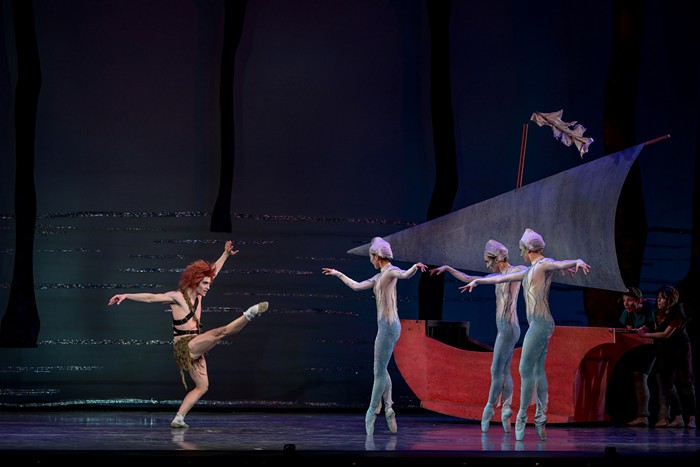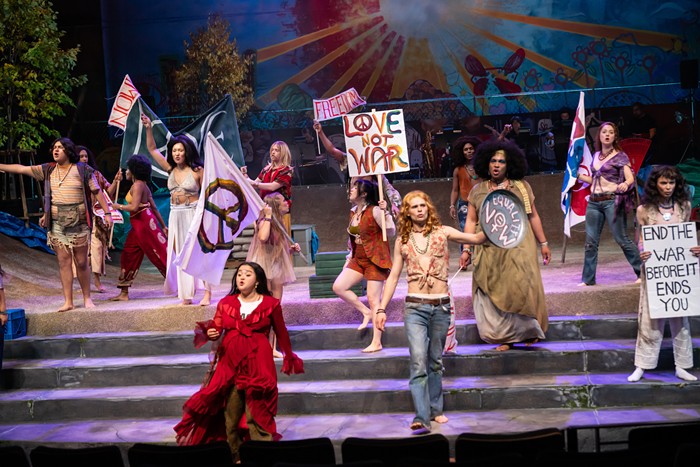ON STAGE: three plays running at once. Two directors, two stage managers, two assistant directors, and a bunch of crew.
Is the Oregon Shakespeare Festival (OSF) putting on a circus with Medea/Macbeth/Cinderella, opening this weekend in Ashland?
No, says co-director Tracy Young. Sure, the two plays—a melding of Medea, a Greek tragedy by Euripedes, and Macbeth, one of the big Shakespeare tragedies—and Cinderella, a classic Rodgers and Hammerstein musical, all run concurrently on the Angus Bowmer Theater stage. And sure, both Young and co-director (and OSF Artistic Director) Bill Rauch say there's no possible way to follow all of the action at once.
But M/M/C, as it's known in festival parlance, still creates a single story, a story that sparked in Rauch's brain when he was a Harvard undergrad—thanks to legendary director Peter Sellars.
When Rauch was a freshman at Harvard, he met Sellars, who had just graduated. Later, Sellars made an offhand comment about the three "great movements in populist drama"—Greek tragedies, Elizabethan dramas, and American musicals—and Rauch's nimble brain took that idea and ran with it. "It really set my heart and my mind a-racing," he says, "and what came out was Medea/Macbeth/Cinderella."
These three plays fit together, Rauch says, because of the emphasis on ambition and royalty in each piece. "They couldn't be more different in so many ways, and yet there are these extraordinary shared rhythms, the way the action falls and climaxes."
Young, who previously directed The Servant of Two Masters and The Imaginary Invalid for OSF, co-directed Medea/Macbeth/Cinderella with Rauch both in a 1998 Cornerstone Theater/Actors Gang production in Los Angeles and in a production at the Yale Repertory Theatre in 2002.
The 2002 production wasn't well received by some critics, but Young still loves M/M/C. She thinks that Ashland's the perfect place for it. "It's a huge piece on every level. It's an epic in every sense of the word," she says.
Because of the resources available at the Oregon Shakespeare Festival—she calls it "top-notch and fantastic," and some designers have called it "Shangri-La"—Young believes M/M/C has changed for the better.
A couple of years ago, Rauch and Young brought M/M/C to the OSF's Black Swan Lab, where actors and directors can workshop plays without the pressure of a staged production and audience. There, they worked with dramaturge Lue Douthit and a variety of experienced actors to figure out more ways to make the piece work. Other resources factored in, too—one of the festival's IT staffers designed software specifically for this script, and OSF built the set last December and then, in an unusual move, ran a nine-day workshop in the fall with almost all of the cast members present.
The festival's stage operations manager, Thomas Curtis, has kept a close eye on the process. He says the scripts line up brilliantly. "You put one next to the other, and it's just, wow."
The OSF might be a good place for a massive experimental production like M/M/C for another reason: the audience. "OSF audiences are extremely curious," Young says.
Rauch says watching this piece isn't exactly a linear process. "You can't track everything at once," he says. "You have to surrender. There will always be some people who can't handle it, but the majority of people find it fascinating and strangely moving."



















